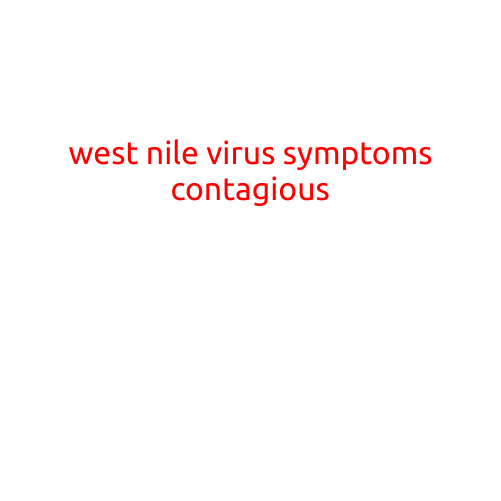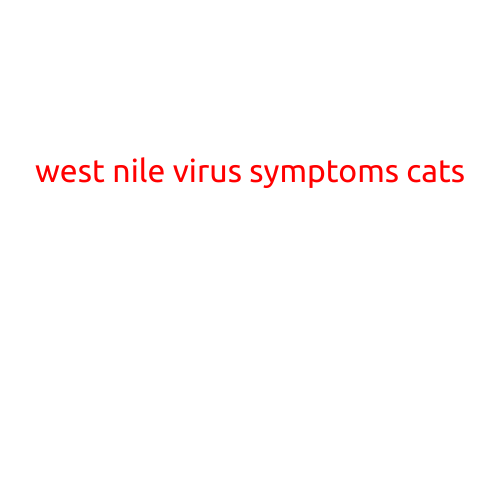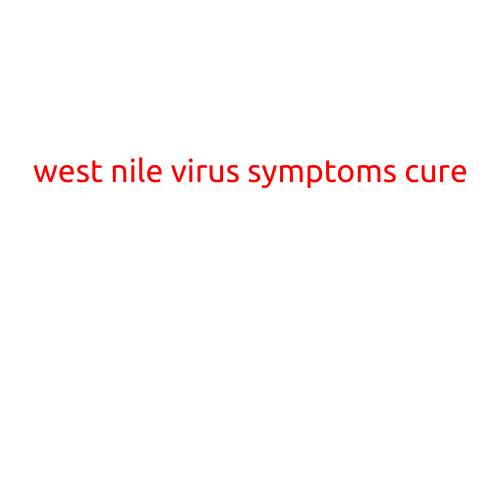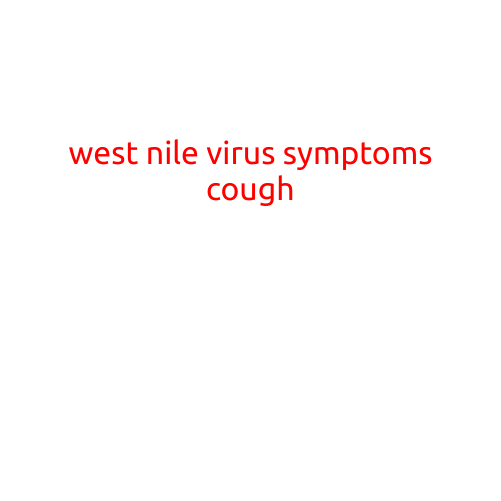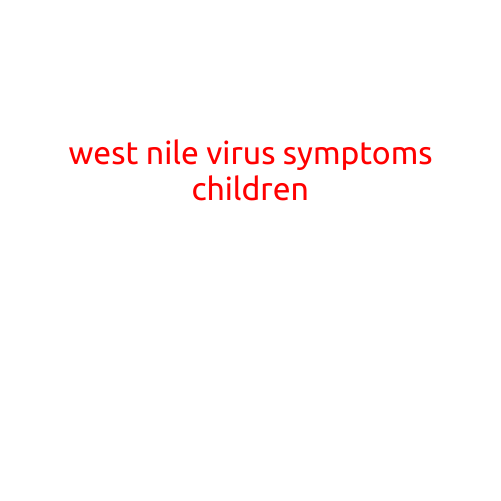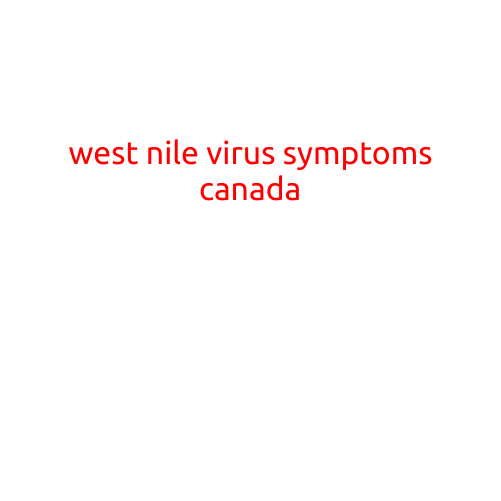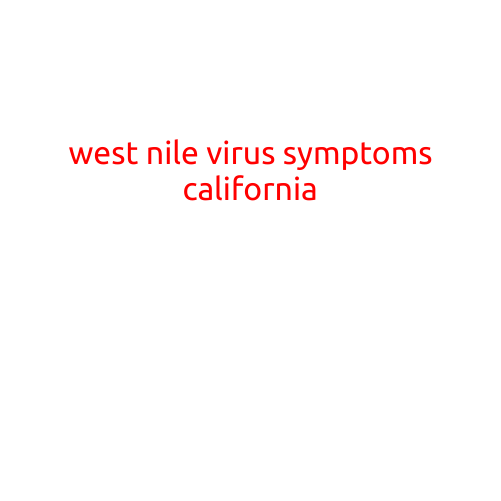
West Nile Virus Symptoms in California: What You Need to Know
West Nile virus (WNV) is a potentially serious illness caused by a virus that is transmitted primarily through the bite of an infected mosquito. While WNV is found throughout the United States, California has been particularly affected by outbreaks in recent years. According to the California Department of Public Health, WNV has been reported in all 58 counties in the state since its introduction in 2003.
Common West Nile Virus Symptoms in California
If you contract WNV, you may experience a range of symptoms, including:
- Fever: A high fever (often above 102°F) is one of the most common symptoms of WNV. The fever usually lasts for several days and can be accompanied by other symptoms.
- Headache: A severe headache, often described as severe or debilitating, is another common symptom of WNV.
- Body aches: Numbness, weakness, or stiffness in the arms and legs, as well as back pains, are also common complaints.
- Swollen lymph nodes: Swelling of the lymph nodes in the neck or other parts of the body can occur, although this is a less common symptom.
- Rash: In some cases, a rash may appear on the skin, although this is not a universal symptom.
Serious West Nile Virus Symptoms in California
While most people with WNV experience mild symptoms, some individuals may develop more severe forms of the illness. These serious symptoms can include:
- Meningitis: Inflammation of the membranes surrounding the brain and spinal cord (meningitis) can occur in some cases.
- Encephalitis: Inflammation of the brain (encephalitis) can also occur, leading to serious health complications.
- Seizures: Seizures and coma can occur in severe cases of WNV.
- Paralysis: In rare cases, WNV can cause temporary paralysis of the arms, legs, or face.
Risk Factors for West Nile Virus in California
While anyone can contract WNV, certain individuals are at higher risk of developing serious symptoms or complications. These risk factors include:
- Age: Adults over 50 years old are more susceptible to developing serious symptoms.
- Weakened immune system: People with weakened immune systems, such as those with HIV/AIDS, cancer, or undergoing chemotherapy, may be more prone to developing serious symptoms.
- Underlying medical conditions: Certain medical conditions, such as diabetes, kidney disease, or liver disease, can increase the risk of developing serious symptoms.
Prevention and Treatment of West Nile Virus in California
While there is no specific treatment for WNV, there are several steps you can take to reduce your risk of contracting the virus:
- Avoid mosquito bites: Use insect repellent, wear protective clothing, and avoid areas with high mosquito activity.
- Eliminate standing water: Mosquitoes need standing water to breed, so eliminate any sources of standing water around your home or property.
- Get tested: If you experience symptoms or have a known exposure to WNV, get tested for the virus.
Conclusion
West Nile virus is a serious illness that can have significant health implications. By understanding the symptoms, risk factors, and prevention strategies, you can take steps to protect yourself and your loved ones from this potentially serious virus. Remember, California is one of the states most affected by WNV, so it’s essential to take proactive measures to reduce your risk of contracting the virus.
